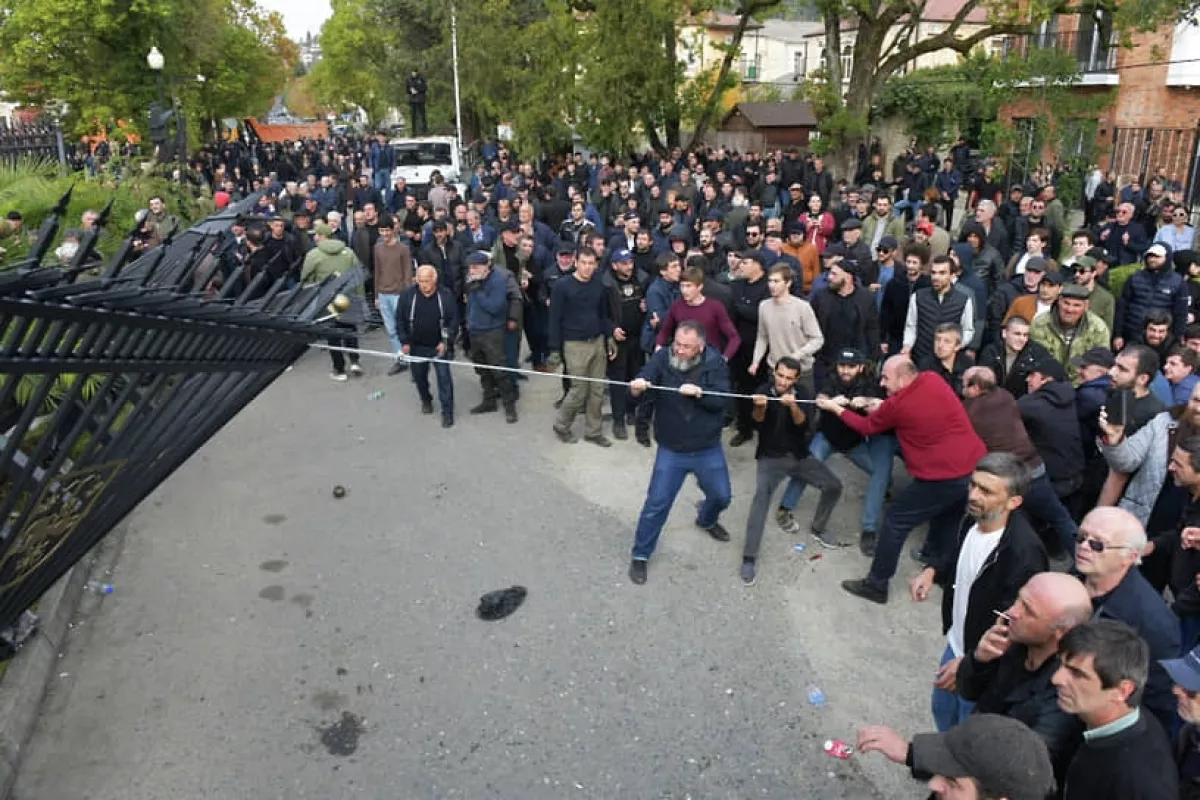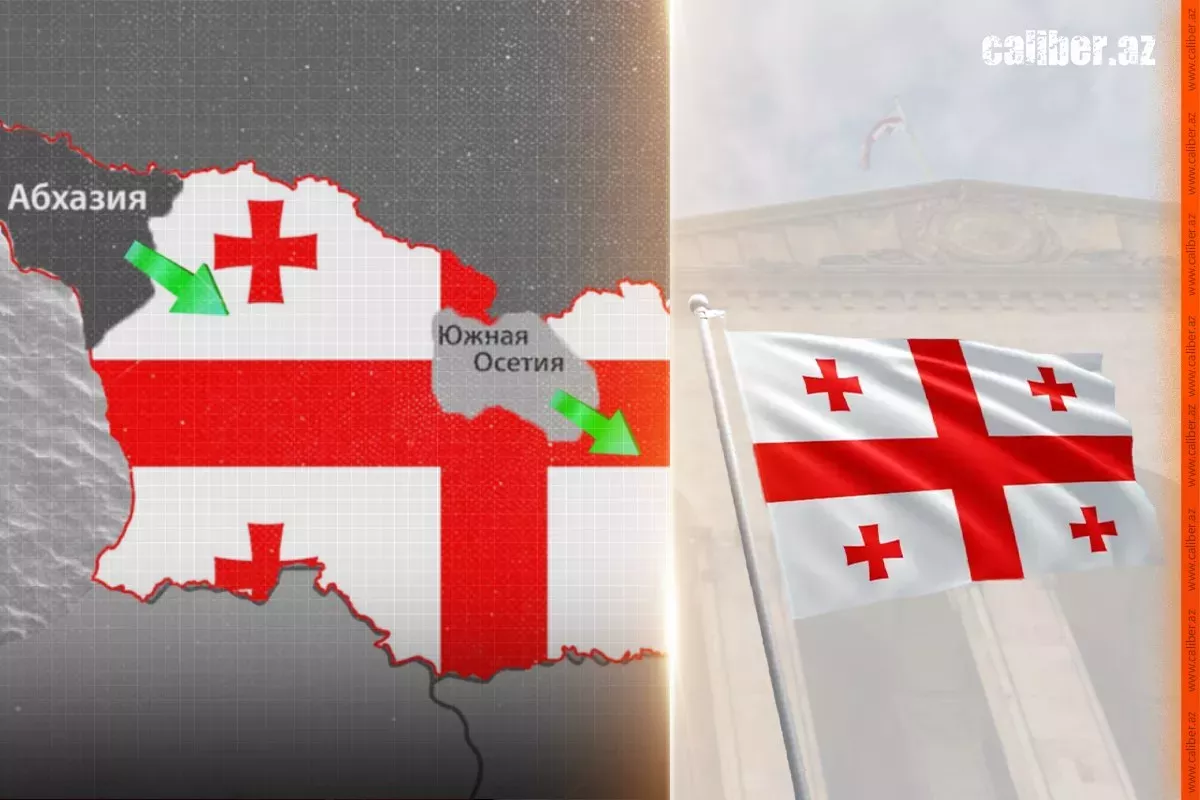"Disconnecting" separatist Abkhazia Russia withdraws support
Separatist Abkhazia is facing a sharp escalation of both its energy and socio-economic crises. The Russian authorities have stopped funding the separatist entity. This cessation of financial support from Russia has been particularly painful for Abkhazia following the December 3 vote by the separatist "parliament" in Sukhumi against an investment agreement with Russia.
On December 6, Abkhaz separatist authorities announced that the flow of funds from Russia had ceased. As a result, they were unable to secure funds to pay for electricity imports from Russia. Additionally, there have been "issues" with mandarins exported from Abkhazia to Russia, as pests were unexpectedly discovered in the shipments.
On December 9, the separatist "government" of Abkhazia sent a letter to Russian Prime Minister Mikhail Mishustin requesting the resumption of financial assistance. However, Mishustin has not responded. Reports indicate that separatist leaders have been trying for days to contact their "handlers" in Moscow and senior Russian government officials with the same plea for renewed funding, but their calls have been ignored.
The situation has been further exacerbated by the shutdown of the Enguri Hydropower Plant due to a drop in the water level of the Jvari Reservoir, which has seen a sharp decrease in inflow with the onset of winter. Since December 11, electricity has been provided to Abkhazian consumers for a maximum of three hours during the day, with further reductions likely. Nighttime blackouts are also expected.
The separatist territory has plunged into darkness and cold, as homes in Abkhazia are typically heated with electric devices. Additionally, power outages have disrupted water supply systems in most towns and villages, leaving residents without running water. Life has become a struggle for "extreme survival"—a grim reality further worsened by the cessation of salaries for public sector employees, previously funded by Russia.
Russian social media and news outlets show little sympathy for the residents of Abkhazia. On the contrary, there is a growing chorus labeling the Abkhazians as "ungrateful," "freeloaders," and "spongers" in response to the cessation of funding. It is clear that the pressure of "cold and hunger" does little to foster pro-Russian sentiment in Abkhazia; in fact, the opposite is true. However, if Russia intends to return Abkhazia to Georgia, the rising anti-Russian sentiment in Abkhazia, coupled with growing disillusionment among Russian citizens with the region, could paradoxically work in the Kremlin's favor. Such sentiments pose no significant threat to Russia's security, while also absolving Moscow of accusations of "betraying an ally" that has come to resent it.

The abrupt and radical shift in the Kremlin's stance toward separatist Abkhazia signals one thing: the previous games of "independence," the supposedly "equal partnership" with Russia, and the "international recognition" of puppet separatist regimes are over. Going forward, there are only two options for the separatists: either the return of Abkhazia and the Tskhinvali region to Georgia, or the full annexation of these two occupied Georgian regions by Russia. The longer this situation unfolds, the more likely the first scenario becomes, while the second is rapidly losing plausibility.
The Sukhumi "Maidan," the resignation of puppet "president" Aslan Bzhania, and the separatist "parliament's" rejection of the "investment agreement" with Moscow all took place before the developments in Syria and the ousting of Bashar al-Assad—a leader whose support has cost Moscow enormous resources over the past decade. The outcome in Syria has become a genuine "geopolitical surprise" for Russia and a blow to its influence in the Middle East, despite attempts by some Russian analysts to frame the withdrawal from Syria as a "trade-off for Ukraine." So far, under this hypothetical "trade-off" (if such an agreement existed), Russia has not managed to regain internationally recognized territories in the Kursk region, currently occupied by Ukrainian forces. These territories might be returned as part of a frozen conflict with Ukraine.
This suggests that the events in Syria may compel Russia to reevaluate its policy in the southern direction. Specifically, they should push Moscow to reconsider its approach to neighboring countries, moving away from trading normal neighborly relations for "vassal quasi-states" on fragments of foreign territories. The strategic value of the South Caucasus and cooperation with the region's countries has grown significantly for Russia.

Russia also needs an image overhaul on the global stage. Following the events in Syria, arguments suggesting that Moscow cannot retract its "recognition of independence" for the separatist regimes in Sukhumi and Tskhinvali due to fears of "losing face" are no longer relevant. On the contrary, any compromise and reconciliation with Georgia regarding its currently occupied territories would appear as a sensible and pragmatic decision. This could easily be spun by Russian propaganda as a "success" and a restoration of Russia's influence.
Moscow is beginning to realize that its position in the Caucasus will largely depend on the success or failure of the "Maidan" in Tbilisi. Regardless of the outcome, further investment in separatist Abkhazia no longer makes sense. If the "Maidan" in Tbilisi fails, the de-occupation of Georgian territories and the normalization of relations with Georgia will become even more pressing issues. In the context of losing an ally, such as Bashar al-Assad in Syria, the value of friendship and good neighborly relations with Georgia has risen sharply for Russia.
Eventually, any long-term Russian investments in Abkhazia will have to be negotiated with Tbilisi, ideally after the question of Abkhazia's reintegration into Georgia is resolved. Investments made in separatist Abkhazia prior to this point could effectively be "written off," much like Russia's investments in Syria have been abruptly nullified.
If the "Maidan" in Tbilisi prevails in some form, Russia will immediately face the prospect of opening a second front, which would likely run through Abkhazia. In that scenario, the focus would no longer be on investments in resorts, summer homes, and hotels but on the construction of defensive structures. Furthermore, the population of the separatist territory would have to adapt to living under extreme conditions, much like the residents of Russia's "frontline" villages in the Kursk region today.
Vladimir Tskhvediani, Georgia, for Caliber.Az








